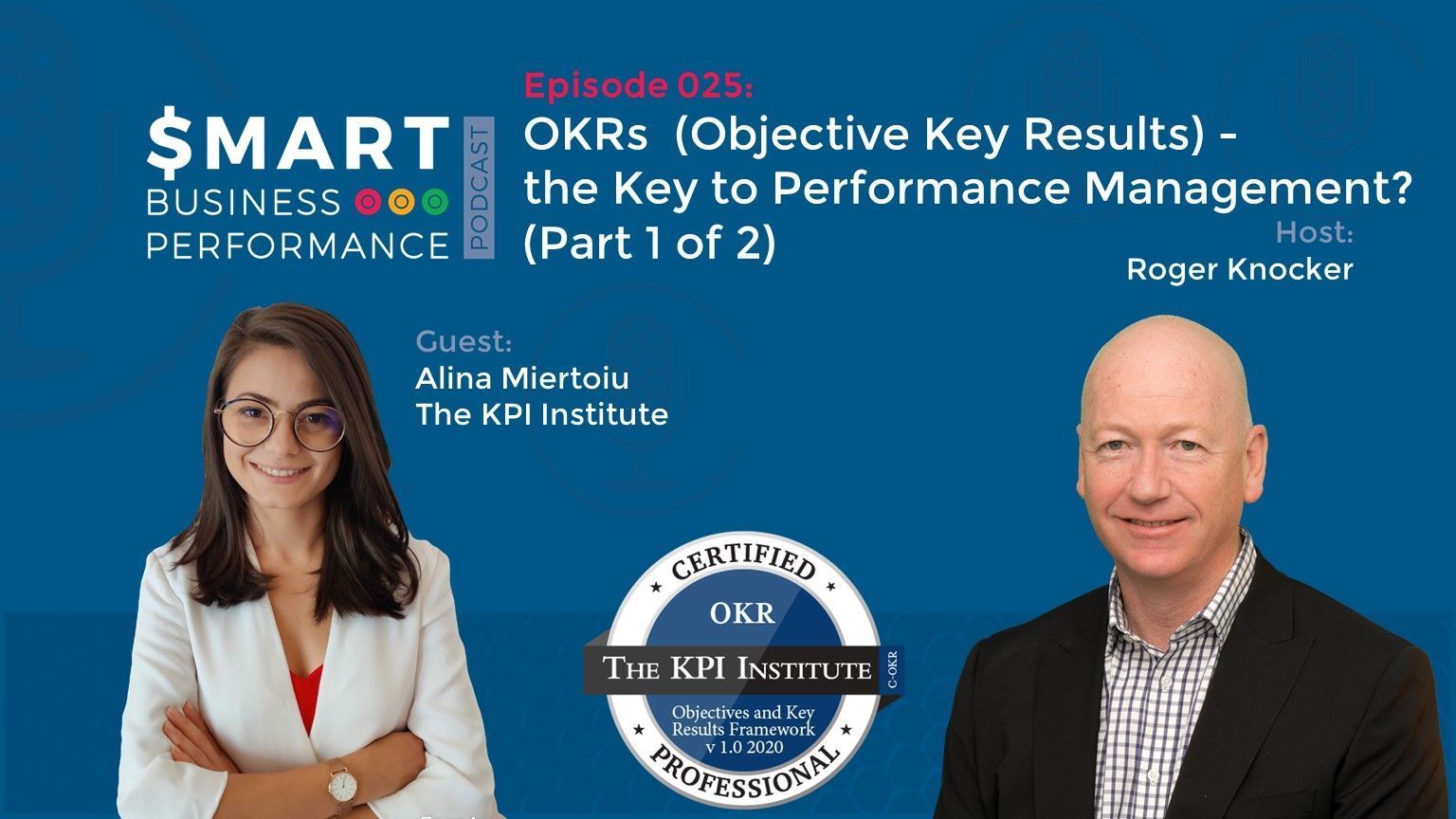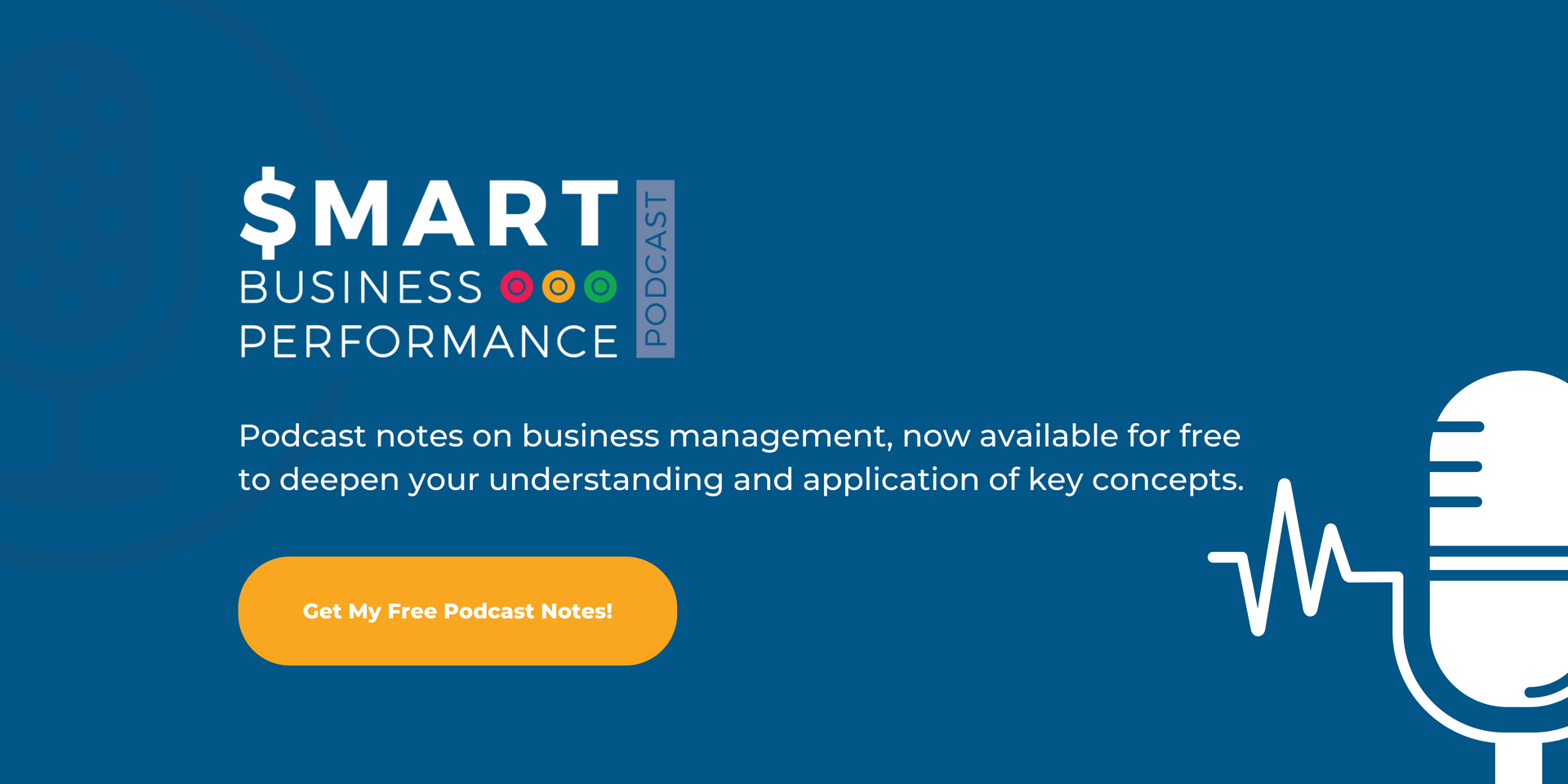SBP025: OKRs (Objective Key Results) the Key to Performance Management? Part 1 of 2
Roger Knocker • January 25, 2024
SBP025: OKRs (Objective Key Results) the Key to Performance Management? Part 1 of 2

In this of the $mart Business Performance Podcast, Roger talks with Alina Miertoiu.
Alina is the OKR Product Manager and a Senior Management Consultant at The KPI Institute. She has a professional background in business research, process improvement and management consulting, being involved in international strategy and performance-related projects for clients from various industries, including IT, utilities, healthcare, venture capital, financial services and manufacturing.
Starting with the basics about OKRs, they end up giving some powerful tips and tricks on how you can use OKRs to boost your business.
Tune in now and make sure to take away the notes with you!
[02:20] What are OKRs?
[05:31] A practical approach towards OKRs
[12:50] Who uses OKRs?
[17:35] Traditional KPIs v/s OKRs
[21:51] Stop working in silos!
[27:27] The essence of OKRs
[31:31] Whole episode in a minute!
Connect with Alina Miertoiu:
On LinkedIn Email her at alina.miertoiu@kpiinstitute.com https://kpiinstitute.org/
Where can we find out more information?
OKR whitepaper written by Alina Miertoiu from the KPI Institute
If you enjoyed this episode of the Smart Business Performance Podcast, then make sure to subscribe to our podcast.
Alina is the OKR Product Manager and a Senior Management Consultant at The KPI Institute. She has a professional background in business research, process improvement and management consulting, being involved in international strategy and performance-related projects for clients from various industries, including IT, utilities, healthcare, venture capital, financial services and manufacturing.
Starting with the basics about OKRs, they end up giving some powerful tips and tricks on how you can use OKRs to boost your business.
Tune in now and make sure to take away the notes with you!
Conversation Highlights:
[02:20] What are OKRs?
- OKRs is a goal-setting framework for defining and tracking objectives and their outcomes.
- Is there really need for another framework?
- The benefits of OKRs
- OKRs value purpose over performance.
[05:31] A practical approach towards OKRs
- Objective v/s Key Result
- An aspect of a good key result is to focus on outcomes rather than measuring the things in between.
- Do statistics matter?
- The frequency of reviewing the progress is a key element for a successful business.
- OKRs provide you with flexibility which is not possible in traditional frameworks.
[12:50] Who uses OKRs?
- OKRs have been around since the 70s!
- How OKRs played a crucial role in Google’s success?
- OKRs are more suited for a very innovative and fast-changing environment.
- How can OKRs work in your context?
- Creating a hybrid system towards success
- OKRs work better in a structured organisation.
[17:35] Traditional KPIs v/s OKRs
- The key difference is the execution of the framework.
- ‘This is what I want to achieve, how are you going to do that?’
- OKRs monitors how value is created rather than monitoring the numbers.
- Split your goal into short objectives.
- OKRs help you do things in a better way.
[21:51] Stop working in silos!
- How collaborations can lead you to success?
- The beauty of OKRs
- What about smart goals?
- Theoretically, you should achieve 70% from your OKRs.
- How to practically approach perfection?
[27:27] The essence of OKRs
- An example of how OKRs can put you closer to success
[31:31] Whole episode in a minute!
- OKRs are an agile and innovative way of managing performance.
- They are probably the best way to fast track and implement changes in your organisation.
- OKR require people to stretch their minds and vision.
- They require tracking on a much more frequent basis and are part of a team effort.
- OKRs are something that drives cultural changes as well.
Connect with Alina Miertoiu:
On LinkedIn Email her at alina.miertoiu@kpiinstitute.com https://kpiinstitute.org/
Where can we find out more information?
OKR whitepaper written by Alina Miertoiu from the KPI Institute
If you enjoyed this episode of the Smart Business Performance Podcast, then make sure to subscribe to our podcast.




